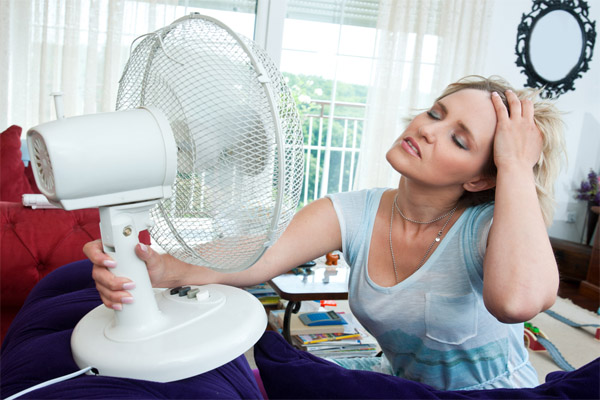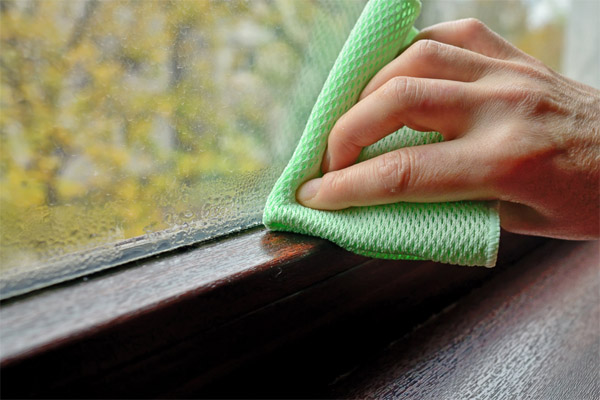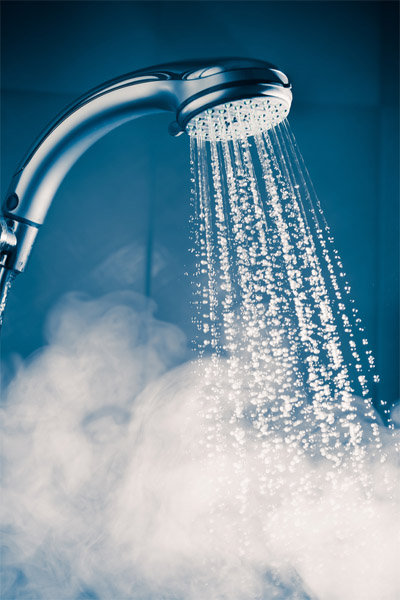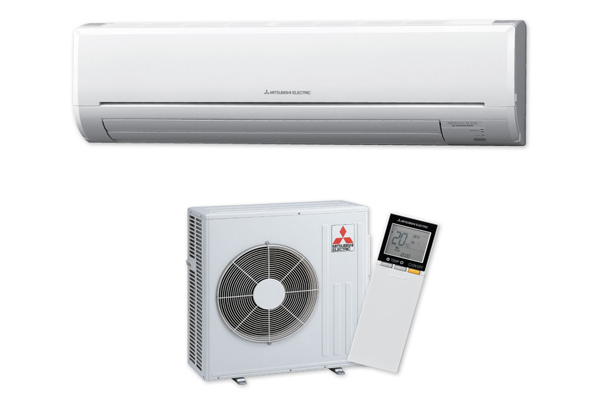 Ductless air conditioning systems are the current stars of the HVAC industry. If you do not know it yet, you may be missing out on enjoying the perfect cooling system that can keep your home cool and your indoor climate comfortable. Ductless HVAC systems are also energy-efficient, allowing you to save on cost over time.
Ductless air conditioning systems are the current stars of the HVAC industry. If you do not know it yet, you may be missing out on enjoying the perfect cooling system that can keep your home cool and your indoor climate comfortable. Ductless HVAC systems are also energy-efficient, allowing you to save on cost over time.
Considering that humidity is a common concern for most homes and offices, we will take a look at how a mini-split ductless system works to keep indoor moisture at a manageable level. We will also help you understand why managing your indoor humidity levels will help keep your environment safe.
Understanding Ductless Air Conditioners
Contents
The main difference between ductless mini-split air conditioners and regular air conditioners is that ductless systems lack ductwork. Ducts are passages or conduits that remove and deliver air. The system of ducts, or ductwork, is required in all ducted air conditioning systems to carry air in and out of an enclosed space. As mentioned above, ductless AC units do not require ductwork. As such, they eliminate common issues that ducted systems have, such as indoor air pollution, space requirements, safety, and aesthetic concerns.
Ductless Installation
Ductless systems do not require a lot of manual labor to install. An HVAC technician will typically drill a small hole through the wall to connect the indoor component with the outdoor component. The conduit is threaded through this hole, along with the tubing and electrical lines. The tubing brings conditioned air from the outdoor condenser or compressor to the indoor air handler. Since the system does not require bulky ductwork, installation is quick and easy.
Ductless systems also offer flexibility as an HVAC contractor can install them wherever they need to provide heating or cooling. Providing cooling and heating solutions for certain areas of a building, such as supplemental cooling or newly-added rooms is often costly, especially if there is no ductwork in place. However, with ductless systems, this is not a concern at all.
Another advantage to ductless systems is that only one outdoor condenser unit is necessary to cool several rooms, which means that investing in multiple outdoor units is not required. Each room or zone, however, will require its own indoor air handler.
Applications Of Ductless Air Conditioning Systems
 The regular air conditioning system is not always a good option for certain building designs. A structure that is not equipped with ductwork, for example, is not a good match for a ducted system. Freestanding structures, sheds, and garages that are not attached to the home are best installed with ductless mini-splits, particularly if you plan on transforming these areas into working or living spaces.
The regular air conditioning system is not always a good option for certain building designs. A structure that is not equipped with ductwork, for example, is not a good match for a ducted system. Freestanding structures, sheds, and garages that are not attached to the home are best installed with ductless mini-splits, particularly if you plan on transforming these areas into working or living spaces.
Having an extension built into a home can be complicated and expensive. Adding ductwork to the project will increase its cost even more. If you plan on adding one or several rooms to an existing structure, it is often necessary to have a new air conditioning unit installed and the old one replaced.
A simpler solution would be to use a mini-split system instead. Also, because they are so energy efficient, many homeowners use them to supplement their existing HVAC systems. This way they can pay to heat or cool a room that is in use, rather than the entire home.
Why High Humidity Is A Concern For Your Indoor Air Quality
 It is likely you have experienced the discomfort of high humidity before. If you have noticed that old, musty odor in an enclosed space, it is likely that mold has grown indoors. Maybe you have noticed foggy windows as well, or that warm, sticky, uncomfortable feeling you get indoors. Maybe you have mold in your shower room. Those are probably signs that there is a high humidity level in your home.
It is likely you have experienced the discomfort of high humidity before. If you have noticed that old, musty odor in an enclosed space, it is likely that mold has grown indoors. Maybe you have noticed foggy windows as well, or that warm, sticky, uncomfortable feeling you get indoors. Maybe you have mold in your shower room. Those are probably signs that there is a high humidity level in your home.
The biggest issue about high humidity indoors is that it causes discomfort and unsightly discolorations on the floors and walls. Also, too much moisture in breathable air can lead to health problems. People suffering from lung-related conditions such as COPD, for example, will find it difficult to breathe in humid environments. High humidity also creates the kind of environment that encourages the growth of potentially harmful microorganisms such as mildew, mold, and certain types of bacteria. When inhaled, mold, and mildew spores could cause allergic reactions and breathing problems in sensitive individuals.
High humidity also causes condensation that fog up the windows and block the view. It can also cause the paint on the ceiling and walls to peel off prematurely. A healthy environment is essential to comfortable living that will promote your health and well-being. Overall, having the correct humidity levels in your home is vital for your health, and it is necessary to prevent damage to your home.
How Humidity Builds Up In Your Home
Shower/Bathroom
 When hot water evaporates, it creates water vapor. This is why the bathroom mirror fogs up after a warm shower. The cool surface of the mirror causes the water vapor to condense. Each time the bathroom door is opened, the moisture in the air escapes to other parts of the house, often resting on the walls, ceilings, and corners where mold, mildew, and bacteria tend to grow.
When hot water evaporates, it creates water vapor. This is why the bathroom mirror fogs up after a warm shower. The cool surface of the mirror causes the water vapor to condense. Each time the bathroom door is opened, the moisture in the air escapes to other parts of the house, often resting on the walls, ceilings, and corners where mold, mildew, and bacteria tend to grow.
Kitchen
Boiling water and cooking produces water vapor. This, in turn, increases the humidity indoors. Each time you cook or prepare food with water or wash plates, tiny water droplets are produced.
Gas Heat
The act of burning gas for fuel creates a byproduct that is water vapor. As long as you have a gas heater with a functioning flue for venting combustion pollutants away from your home, the problem with humidity should be kept at a minimum. However, if your home has a gas heater without a vent, it will release not just water vapor but also pollutants into indoor air.
Inadequate Ventilation
The ventilation system in the home works to eliminate pollutants and excess humidity from indoor air. However, ventilation systems are often insufficient for handling high levels of humidity, causing it to build up along with other pollutants. This could put your health and that of your family at risk. If someone in the household has allergies or respiratory disorders, high humidity combined with air pollutants could aggravate these conditions.
Location
If you live in an area prone to high humidity, such as near a beach or along coastlines, you are likely to experience warm, humid conditions indoors. There is little you can do about the weather, but there are still steps you can take to create a healthy indoor living environment in your home.
How HVAC Systems Can Improve Indoor Air Quality
 If you have ways to minimize humidity indoors, you can keep your family healthy and comfortable. For many of us, we think that air conditioners are there mainly to cool the air. The truth is that air conditioners are far more useful than that. For one, they are equipped with air filters to collect pollutants, and they serve to remove humidity from the air. The removal of these pollutants helps minimize the growth of mold, mildew, and bacteria, hence improving indoor air quality.
If you have ways to minimize humidity indoors, you can keep your family healthy and comfortable. For many of us, we think that air conditioners are there mainly to cool the air. The truth is that air conditioners are far more useful than that. For one, they are equipped with air filters to collect pollutants, and they serve to remove humidity from the air. The removal of these pollutants helps minimize the growth of mold, mildew, and bacteria, hence improving indoor air quality.
HVAC Air Filters
To keep air clean indoors, clean, or replace air filters regularly. Air filters collect dust, dirt, and other particulates. Over time, they build up and affect the efficiency of the AC unit itself. Clogged filters impede proper airflow through the AC, forcing the AC unit to work harder unnecessarily. By cleaning or replacing the air filters, you can keep the AC in top form and functioning properly.
Air Conditioner Size
Next, make sure that your air conditioner is the proper size and capacity for the area where it serves. Choose an AC unit that matches the capacity required for a specific room. If the AC is too big, you will be paying more for cooling capacity you do not need. The unit will also cycle on and off more frequently than it should. Your environment will feel cool but humid. If it is too small, the unit will have to work harder to keep the space cool. This puts too much burden on the unit, making it more vulnerable to motor breakdowns.
SEER Rating
Air conditioning systems, like the majority of electronic devices and appliances, are rated using the SEER system. A unit with a higher SEER rating is an indication of its energy efficiency. This means that the unit works well without consuming more energy than is necessary. Look for a unit that offers features such as variable speeds and high-capacity air filters. They last longer and allow you to customize your indoor environment based on your comfort requirements.
HVAC Services
Lastly, make sure that your air conditioning system is installed only by a licensed and trained HVAC technician. Correct installation is key to ensuring that the unit serves you well and will last you for many years.
Can Ductless AC Systems Manage Humidity?
 Humidity is a natural occurrence. Unfortunately, it can have adverse effects on our health. For people suffering from lung problems, for example, humidity can make breathing difficult. It also causes physical discomfort indoors. On days when humidity is at its peak, you would feel warm, uncomfortable, and sweaty.
Humidity is a natural occurrence. Unfortunately, it can have adverse effects on our health. For people suffering from lung problems, for example, humidity can make breathing difficult. It also causes physical discomfort indoors. On days when humidity is at its peak, you would feel warm, uncomfortable, and sweaty.
Keeping humidity low can help us stay comfortable and cool. In fact, low humidity on warm days can be more comfortable than high humidity on average temperature days. Keeping humidity low can help keep energy costs down as well since we do not require too much energy to cool off. Plus, low humidity makes it difficult for microorganisms to grow. We not only stay comfortable indoors, but we are also safe.
Dry Mode
Mini-split ductless AC systems are designed to create a cool environment by removing humidity as well. These systems are not only necessary for homes in warm climates, but they are also efficient. By eliminating moisture, ductless AC systems keep the indoor air cool. These systems even have a “dry mode” feature that directly addresses the problem of humidity.
Mini-split ductless AC systems are designed to push cooled air directly into a room.
The system moves warm air from inside the room to coolant-filled coils which absorb the heat and reduce the temperature of the air drastically. There is very little moisture in cool air. This is the reason why air is dry during winter. Inside the AC, the air moisture condenses when it is pushed over the coil. When air is cooled, it is pushed back into the room.
The dry mode feature in mini-split systems is one of the most interesting components that will ensure optimum comfort. When dry mode is switched on, the fans move slower, allowing air to linger on the coils longer. This process helps remove more moisture without significantly lowering air temperature. As such, cooled air from the system remains comfortable.
Check Out One Of Our Ductless Installation Projects
For Your HVAC Needs, Call PFO Heating & Air Conditioning
Comfort and safety should be non-negotiable when it comes to choosing an air conditioning system for the home. If you want a system that works efficiently, offers greater flexibility and reduces humidity effectively, the mini-split ductless system is the best option you have.
Call PFO Heating & Air Conditioning, a leading HVAC service provider in the area. We offer HVAC installation, repairs, and tune-ups with fast delivery of service, accuracy, and reliability. Our HVAC service company has years of experience in the industry and offers practical solutions for your home air conditioning at affordable prices. Call PFO Heating & Air Conditioning for a free estimate when you need affordable, considerate, friendly service delivered in a timely fashion.
Click here to contact us now or call us at (800) 253-9001 to find out more!



